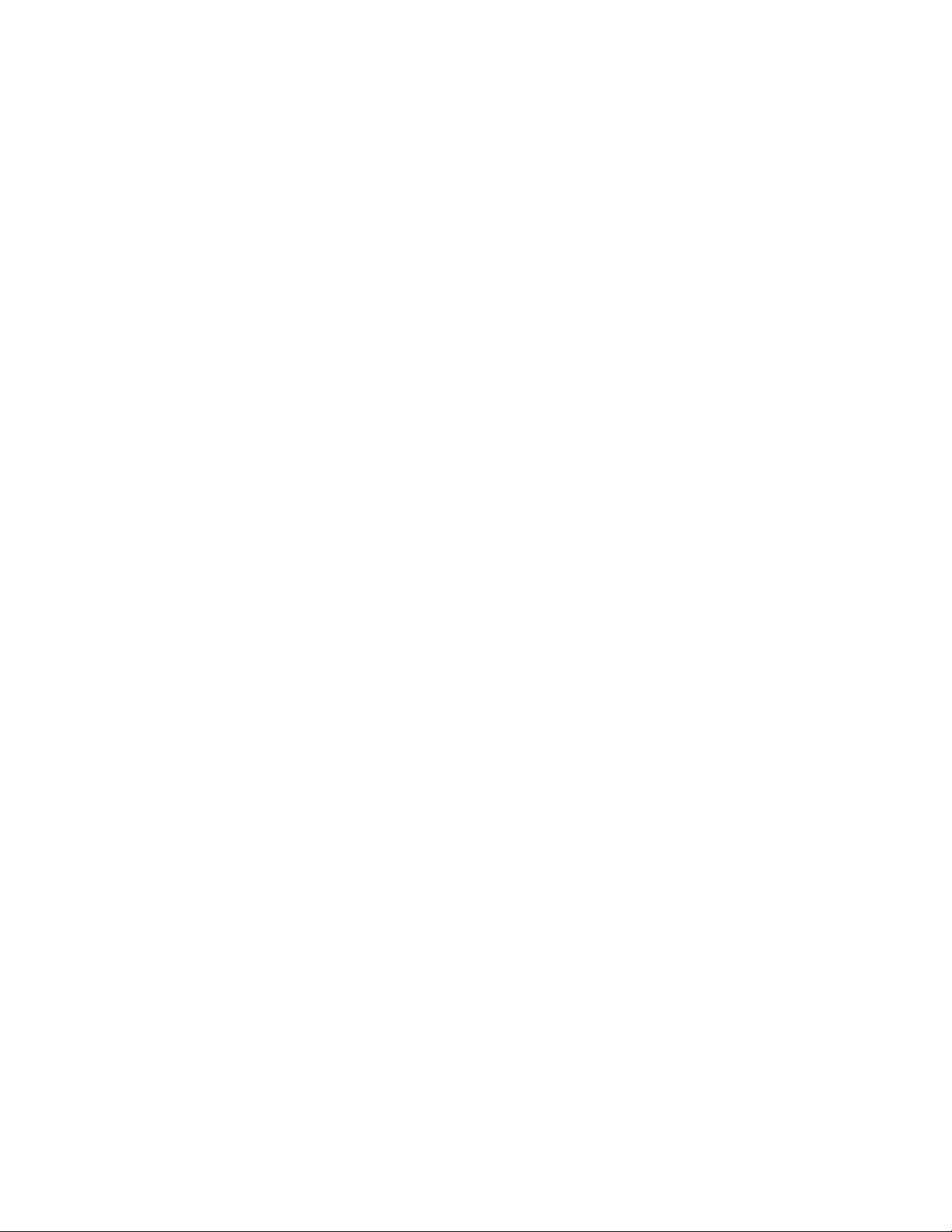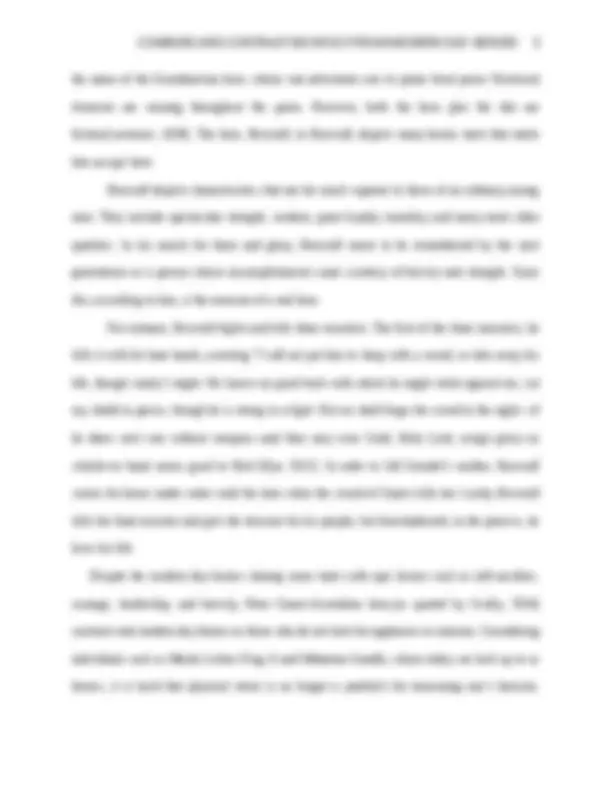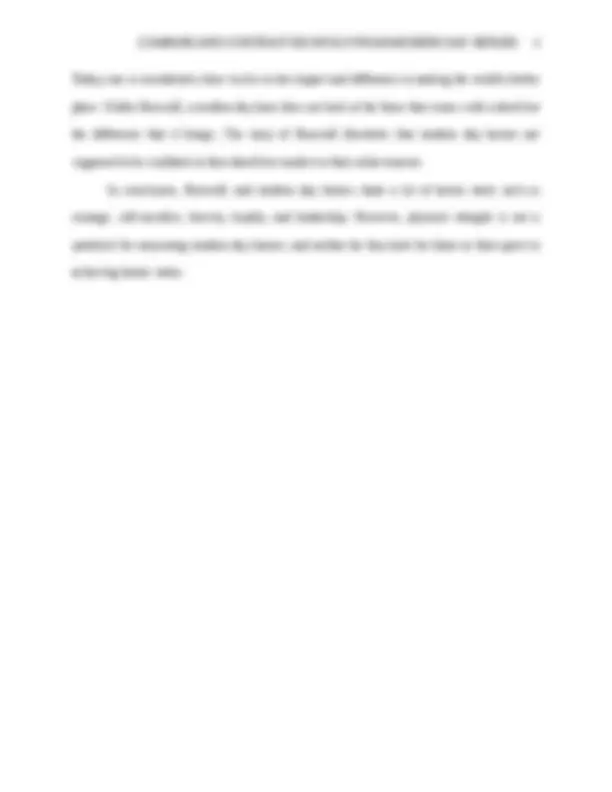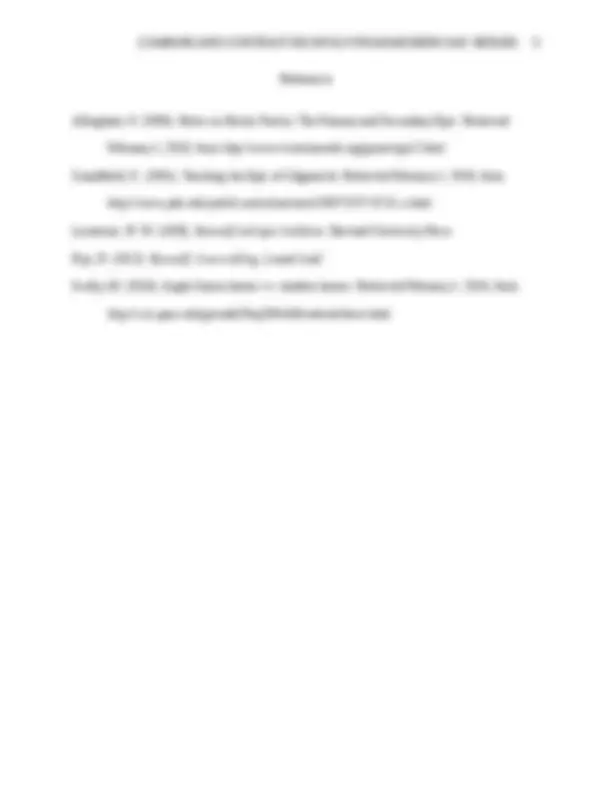





Study with the several resources on Docsity

Earn points by helping other students or get them with a premium plan


Prepare for your exams
Study with the several resources on Docsity

Earn points to download
Earn points by helping other students or get them with a premium plan
Community
Ask the community for help and clear up your study doubts
Discover the best universities in your country according to Docsity users
Free resources
Download our free guides on studying techniques, anxiety management strategies, and thesis advice from Docsity tutors
COMPARE AND CONTRAST BEOWULF FROM MODERN DAY HEROES 2. This essay seeks to compare and contrast epic heroes to modern day heroes. First, this essay.
Typology: Study notes
1 / 5

This page cannot be seen from the preview
Don't miss anything!




Running head: COMPARE AND CONTRAST BEOWULF FROM MODERN DAY HEROES Compare and Contrast Beowulf from Modern Day Heroes Nancy Mwaro
This essay seeks to compare and contrast epic heroes to modern day heroes. First, this essay examines the traits of an epic hero and that of a modern day hero. Secondly, it contrasts the two heroic traits and then examines the characteristics of both Beowulf and modern day heroes that make them typify an epic hero and modern day hero simultaneously. A hero can be defined in an array of ways. Scully (2016) defines a hero in four different ways. First, Scully argues that a hero is viewed as a divine ancestry in mythology and legend, who is gifted with strength, courage, celebrated for his feats, and gets favor from the gods. Secondly, she views a hero as a person who risks his/her life and makes sacrifices for a cause. Thirdly, a hero, according to Scully is a person respected for his or her accomplishments in a particular field. Lastly, Scully claims that a hero is a usually a principal male character in a poem, novel, a movie or a dramatic presentation. From the definitions as mentioned earlier by Scully, several traits of an epic and a modern day hero can be extracted for comparison and contrast. According to Grandfield (2001), an epic hero is viewed as a male character with supernatural powers or abilities. These abilities are many a time universal qualities possessed by all beings but in a magnified way. Examples can include strength, brevity, and courage. Accordingly, an epic hero is considered a leader whose leadership is put to the test in a quest. Subsequently, an epic hero is a like a demi-god who dares travel on a path or a world where no ordinary being can dare (Allingham, 2005). Lastly, an epic hero may appear defeated or to have given up, and then all of a sudden resurrects and takes his rightful place (Allingham, 2005; Grandfield, 2001). An example of an epic hero is Beowulf, in Beowulf. Beowulf is the only known oldest surviving epic poem written in the English language as well as the first piece of the European vernacular writing. It was recorded in the Old English, the tongue of Saxons. Initially untitled, in the nineteenth century, the piece began to be labeled by
Today, one is considered a hero via his or her impact and difference in making the world a better place. Unlike Beowulf, a modern day hero does not look at the fame that comes with a deed but the difference that it brings. The story of Beowulf illustrates that modern day heroes are supposed to be confident in their deeds but modest in their achievements. In conclusion, Beowulf, and modern day heroes share a lot of heroic traits such as courage, self-sacrifice, brevity, loyalty, and leadership. However, physical strength is not a yardstick for measuring modern day heroes, and neither do they look for fame in their quest to achieving heroic status.
References Allingham, P. (2005). Notes on Heroic Poetry: The Primary and Secondary Epic. Retrieved February 1, 2016, from http://www.victorianweb.org/genre/epic2.html Grandfield, K. (2001). Teaching the Epic of Gilgamesh. Retrieved February 1, 2016, from http://www.yale.edu/ynhti/curriculum/units/2007/2/07.02.01.x.html Lawrence, W. W. (1928). Beowulf and epic tradition. Harvard University Press. Nye, R. (2012). Beowulf: A new telling. Laurel Leaf. Scully, M. (2016). Anglo-Saxon heroes vs. modern heroes. Retrieved February 1, 2016, from http://csis.pace.edu/grendel/Proj2004A8/website/hero.html